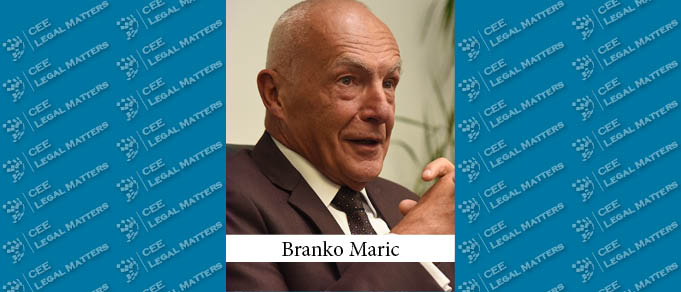“The country we live in is, in many ways, just a mirage – there are indications of there being a functioning state, but in reality it is very difficult to see it,” says Maric & Co. Managing Partner Branko Maric, noting that, “for over two years now, since the last general election, we have had a technical government.”
Maric says that the structure of political parties in Bosnia & Herzegovina is such that often “divisions are created based on nationality and religion in order to get to power – only to push all important issues to the background once that power is grabbed.”
However, he says, there are indications that this may change soon. In the November municipal elections across Bosnia & Herzegovina, ruling parties in both of the constituent entities of the country, the Federation of Bosnia & Herzegovina and Republika Srpska, won the majority of municipalities – but lost in key cities like Sarajevo and Banja Luka. “This is a strong indicator that the people have had enough,” Maric says. “The people have begun to realize that they have been played for fools for a long time and that they need a change.” According to him, the strong showing of the opposition does not necessarily mean that its ideas captivated the public, but instead reflects a “desire to change the course that the ruling parties have been taking.”
Still, he says, this rare opportunity for change is fragile. “This is a crucial period for the country – if the opposition messes up in any way, the ruling parties will only solidify their positions and we’ll be facing another long period of absolutely no change or progress.”
There has been no significant legislation passed in recent months, Maric reports. “Because we have a technical government, legislative movement has been at a glacial pace,” he says. “No important laws have been updated, amended, or even announced to have entered a procedure for any such change or revision. There have been some indications about potentially changing certain frameworks related to investments, but this is all still puffery.”
Maric says that the infrastructure of the country is maintained by EBRD and EIB loans that seek to improve structural issues. “These loans are what keeps us afloat – all of the other economic programs have stalled.” Other reforms, he says, targeted at improving the country’s overall condition as part of the EU accession process, amount to “minor cosmetic changes,” and he says that “core change is impossible until an actual government is in place. As long as this is stalled, there won’t be a strong actor with whom the EU can work to help the country go through tough times.”
Ultimately, Maric insists that the economy of Bosnia & Herzegovina is “tough as nails,” but he says that this is almost entirely due to the “tenacity of the private sector." According to him, "the legal and tax framework for business is rather convenient," and he adds that the state “does not interfere in business activities and the business is habituated not to have any help of the state but at least the state does not do much harm.”
According to Maric, “structural investments in infrastructural projects, on the part of the country, are non-existent.” There have been announcements, however, of plans to initiate major projects like the C5 corridor highway towards Hungary, the 2-track speedway towards Serbia, and the possibility of having some of the South Stream pipeline go through Bosnia, but he says that nothing has been settled yet. According to him, “it is not possible to predict what will happen with any of them in the near future.”
















